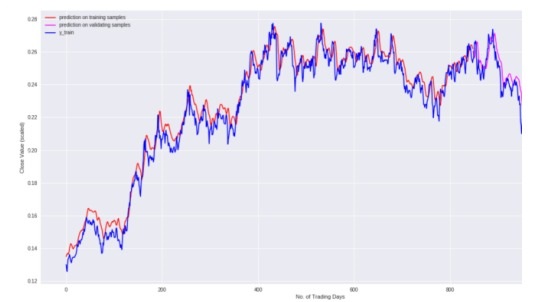Stock Price Prediction Model Based on Convolutional Neural Networks
DOI:
https://doi.org/10.5281/zenodo.12780145ARK:
https://n2t.net/ark:/40704/JIEAS.v2n4a01References:
28Keywords:
Convolutional Neural Networks, Stock Price Prediction, Financial Markets, Deep Learning, Technical indicators, Prediction Accuracy, Feature Extraction, Model Performance, Machine Learning, Time Series AnalysisAbstract
Stock price prediction is a challenging task due to the volatility and non-linear nature of financial markets. Traditional models often fail to capture complex patterns in the data. This paper presents a Convolutional Neural Network (CNN) based approach to predict stock prices. The model leverages historical stock data and various technical indicators. Unlike conventional methods that rely on hand-crafted features, our CNN model automatically learns and extracts relevant features from raw data, enhancing prediction accuracy. We compare the performance of our CNN model with other traditional models, including linear regression and support vector machines (SVM). Experimental results, using metrics such as Root Mean Squared Error (RMSE) and Mean Absolute Error (MAE), show that the CNN model outperforms the traditional models in terms of prediction accuracy. Additionally, we demonstrate the robustness of the CNN model through various validation techniques and highlight its potential for practical applications in financial markets.
Downloads
Metrics
References
Fischer, T., & Krauss, C. (2018). Deep learning with long short-term memory networks for financial market predictions. European Journal of Operational Research, 270(2), 654-669.
Kim, H. Y., & Kim, H. Y. (2019). A new metric of absolute percentage error for intermittent demand forecasts. International Journal of Forecasting, 35(1), 149-156.
Patel, J., Shah, S., Thakkar, P., & Kotecha, K. (2015). Predicting stock and stock price index movement using trend deterministic data preparation and machine learning techniques. Expert Systems with Applications, 42(1), 259-268.
Heaton, J. B., Polson, N. G., & Witte, J. H. (2017). Deep learning in finance. Annual Review of Financial Economics, 9, 201-228.
Bao, W., Yue, J., & Rao, Y. (2017). A deep learning framework for financial time series using stacked autoencoders and long short-term memory. PLoS One, 12(7), e0180944.
Nelson, D. M., Pereira, A. C., & de Oliveira, R. A. (2017). Stock market's price movement prediction with LSTM neural networks. International Joint Conference on Neural Networks (IJCNN), 1419-1426.
Shen, Y., & Shafiq, M. O. (2020). Short-term stock market price trend prediction using a comprehensive deep learning system. IEEE Access, 8, 85232-85248.
Huang, W., Nakamori, Y., & Wang, S. Y. (2005). Forecasting stock market movement direction with support vector machine. Computers & Operations Research, 32(10), 2513-2522.
Chong, E., Han, C., & Park, F. C. (2017). Deep learning networks for stock market analysis and prediction: Methodology, data representations, and case studies. Expert Systems with Applications, 83, 187-205.
Kingma, D. P., & Ba, J. (2015). Adam: A method for stochastic optimization. arXiv preprint arXiv:1412.6980.
Liu, T., Cai, Q., Xu, C., Zhou, Z., Ni, F., Qiao, Y., & Yang, T. (2024). Rumor Detection with a novel graph neural network approach. arXiv Preprint arXiv:2403. 16206.
Liu, T., Cai, Q., Xu, C., Zhou, Z., Xiong, J., Qiao, Y., & Yang, T. (2024). Image Captioning in news report scenario. arXiv Preprint arXiv:2403. 16209.
Xu, C., Qiao, Y., Zhou, Z., Ni, F., & Xiong, J. (2024a). Accelerating Semi-Asynchronous Federated Learning. arXiv Preprint arXiv:2402. 10991.
Zhou, J., Liang, Z., Fang, Y., & Zhou, Z. (2024). Exploring Public Response to ChatGPT with Sentiment Analysis and Knowledge Mapping. IEEE Access.
Zhou, Z., Xu, C., Qiao, Y., Xiong, J., & Yu, J. (2024). Enhancing Equipment Health Prediction with Enhanced SMOTE-KNN. Journal of Industrial Engineering and Applied Science, 2(2), 13–20.
Zhou, Z., Xu, C., Qiao, Y., Ni, F., & Xiong, J. (2024). An Analysis of the Application of Machine Learning in Network Security. Journal of Industrial Engineering and Applied Science, 2(2), 5–12.
Zhou, Z. (2024). ADVANCES IN ARTIFICIAL INTELLIGENCE-DRIVEN COMPUTER VISION: COMPARISON AND ANALYSIS OF SEVERAL VISUALIZATION TOOLS.
Xu, C., Qiao, Y., Zhou, Z., Ni, F., & Xiong, J. (2024b). Enhancing Convergence in Federated Learning: A Contribution-Aware Asynchronous Approach. Computer Life, 12(1), 1–4.
Wang, L., Xiao, W., & Ye, S. (2019). Dynamic Multi-label Learning with Multiple New Labels. Image and Graphics: 10th International Conference, ICIG 2019, Beijing, China, August 23--25, 2019, Proceedings, Part III 10, 421–431. Springer.
Wang, L., Fang, W., & Du, Y. (2024). Load Balancing Strategies in Heterogeneous Environments. Journal of Computer Technology and Applied Mathematics, 1(2), 10–18.
Wang, L. (2024). Low-Latency, High-Throughput Load Balancing Algorithms. Journal of Computer Technology and Applied Mathematics, 1(2), 1–9.
Wang, L. (2024). Network Load Balancing Strategies and Their Implications for Business Continuity. Academic Journal of Sociology and Management, 2(4), 8–13.
Li, W. (2024). The Impact of Apple’s Digital Design on Its Success: An Analysis of Interaction and Interface Design. Academic Journal of Sociology and Management, 2(4), 14–19.
Wu, R., Zhang, T., & Xu, F. (2024). Cross-Market Arbitrage Strategies Based on Deep Learning. Academic Journal of Sociology and Management, 2(4), 20–26.
Wu, R. (2024). Leveraging Deep Learning Techniques in High-Frequency Trading: Computational Opportunities and Mathematical Challenges. Academic Journal of Sociology and Management, 2(4), 27–34.
Wang, L. (2024). The Impact of Network Load Balancing on Organizational Efficiency and Managerial Decision-Making in Digital Enterprises. Academic Journal of Sociology and Management, 2(4), 41–48.
Chen, Q., & Wang, L. (2024). Social Response and Management of Cybersecurity Incidents. Academic Journal of Sociology and Management, 2(4), 49–56.
Song, C. (2024). Optimizing Management Strategies for Enhanced Performance and Energy Efficiency in Modern Computing Systems. Academic Journal of Sociology and Management, 2(4), 57–64.

Downloads
Published
How to Cite
Issue
Section
ARK
License
Copyright (c) 2024 The author retains copyright and grants the journal the right of first publication.

This work is licensed under a Creative Commons Attribution 4.0 International License.
















